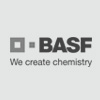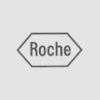- Description
- Specifications
Catalog #: PRO-349
Description:
Cytokeratin 18 Human Recombinant produced in E.Coli is a single, non-glycosylated polypeptide chain having a calculated molecular mass of 48,201 Dalton, showing a 45kDa band on SDS-page, pI-5.7.
The KRT18 is purified by proprietary chromatographic techniques.
Synonyms:
Keratin type I cytoskeletal 18, Cytokeratin-18, CK-18, Keratin-18, K18, KRT18,CYK18,Cell proliferation-inducing gene 46 protein.
Source:
Escherichia Coli.
Purity:
Greater than 95.0% as determined by(a) Analysis by RP-HPLC.
(b) Analysis by SDS-PAGE.
Solubility:
It is recommended to reconstitute the lyophilized CK-18 in sterile 18MΩ–cm H2O not less than 100 µg/ml, which can then be further diluted to other aqueous solutions.
Formulation:
The protein (1mg/ml) was lyophilized from a sterile solution containing 30mM Tris-HCL pH-8, 9.5M urea, 2mM EDTA, 2mM DTT and 10mM methylammonium chloride.
Stability:
Lyophilized CK-18 although stable at room temperature for 3 weeks, should be stored desiccated below -18 °C. Upon reconstitution CK-18 should be stored at 4 °C between 2-7 days and for future use below
-18 °C.
For long term storage it is recommended to add a carrier protein (0.1% HSA or BSA).
Please prevent freeze-thaw cycles.
Physical Appearance:
Sterile Filtered White lyophilized (freeze-dried) powder.
Reconstitution to Filaments:
Performed by mixing equimolar amounts of cytokeratins of type I and type II at concentrations of approx. 0.5 mg/ml, both dissolved in 9.5M urea buffer (see above). Protofilaments and filament complexes are obtained by dialyzing the resulting polypeptide solution stepwise to a concentration of 4M urea and then to low salt condition (50mM NaCl, 2mM dithiothreitol, 10mM Tris-HCI, pH 7.4). For immunization purposes, the solution can be further dialyzed against PBS (phosphate buffered saline, e.g. Dulbecco's PBS).
Usage:
Denovo Biotechnology's products are furnished for LABORATORY RESEARCH USE ONLY. The product may not be used as drugs, agricultural or pesticidal products, food additives or household chemicals.
References:
1.Title:Role for the PP2A/B56 Phosphatase in Regulating 14-3-3 Release from Cdc25 to Control Mitosis.
Publication:Copyright 2006 Elsevier Inc. All rights reserved. Cell, Volume 127, Issue 4, 759-773, 17 November 2006 doi:10.1016/j.cell.2006.10.035
Link:http://www.cell.com/retrieve/pii/S0092867406014139?cc=y
2.Title:Role for the PP2A/B56? Phosphatase in Regulating 14-3-3 Release from Cdc25 to Control Mitosis.
Publication:
Received 3 May 2006. Revised 23 August 2006. Accepted 9 October 2006. Available online 16 November 2006. Published: November 16, 2006.
Link:http://www.sciencedirect.com/science/article/pii/S0092867406014139
















